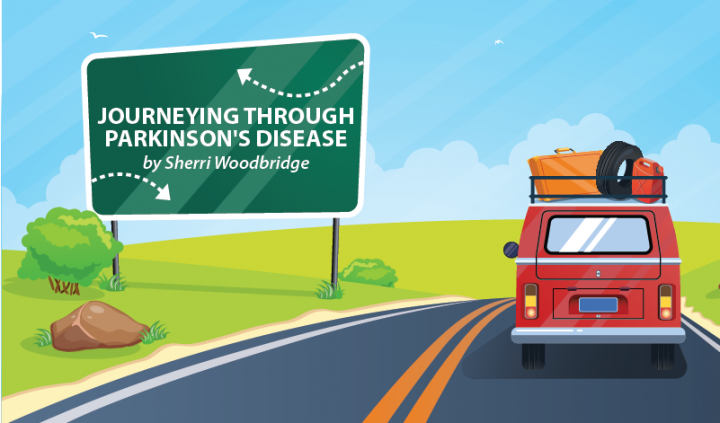Tim Hague Says to ‘Live Your Best’ with Parkinson’s Disease
Written by |

I have read several books “about” Parkinson’s disease (PD). Some were by doctors, some by patients. Some books educated and others encouraged. Some are fact while others are fiction. It seems like every couple of months, new ones come out, especially those written by people who have the disease. They all have a place in the PD world. While they will not all be liked by everyone everywhere, they will each speak to at least someone, somewhere.
I just finished a book the other day by Tim Hague Sr., who I heard speak at the 2016 World Parkinson’s Congress in Portland, Oregon. Some may know Tim by presentations he has given elsewhere, such as TEDxWinnipeg, or from the first season of “The Amazing Race Canada,” in which he competed alongside his son, Tim Jr. Or some may have already read the book I did, “Perseverance: The Seven Skills You Need to Survive, Thrive, and Accomplish More Than You Ever Imagined.”
Tim’s book is about putting forth his best, not only post-diagnosis of young-onset Parkinson’s disease, but also pre-diagnosis. I highly recommend the book, which I purchased on Kindle. After hearing a teaser of Tim’s story in Portland and later learning he had a book coming out, I knew I wanted to read it.
In Portland, the emphasis of his presentation was “live your best.” He gave a few pointers in his short speech on how he learned to do that through life experiences and his time competing on “The Amazing Race.”
Interested in Parkinson’s Disease research? Sign up for our forums and join the conversation!
Hague says: “Perseverance—a great big long word that’s often attached to difficulties. Yet if we learn its lessons, our lives will be deeper, richer, and more vibrant than we ever imagined.” Hague defines the point of his book, perseverance, and then shows readers how he has embodied that characteristic through life challenges.
Tim had to learn how to live his best right out of the birth canal when he was put up for adoption. He finally was adopted to a loving home, but not until after he learned the meaning of (how he terms his ethnicity) “being a half-breed” born in the 1960s.
Life wasn’t always easy, but with the tremendous support of his parents, who adopted four other boys of the same ethnicity, he eventually learned to take his kindergarten teacher’s advice and “live his best.”
Tim’s book demonstrates countless times that he chose to live his best when he could have gotten by with “good enough.” He also shows how choosing to live his best became a blessing, as it gave him many opportunities to share his story.
Tim has many takeaways in his book. Some of my favorites are:
- “I’m learning to let go of the regret about what I can’t do and hold on to the hope of what can still be done.”
- “I won’t sit back and allow Parkinson’s to destroy my world. I’ll learn the language, understand the context of my new reality, and then encourage others to thrive with me in this battle.”
- “Parkinson’s has taught me that I have no choice but to simplify my focus. It’s often not obvious how important this idea is: doing less so that you can do or be more.”
- “I have no choice in the fact that I’ve been given Parkinson’s. I do, however, have a choice in how I live with it. I can allow it to be a tremendous evil in my life or I can acknowledge that it’s given me for more than it’s taken.”
- “The opportunities that enter our lives shouldn’t be thrown off just because we’re uncomfortable with them or afraid of what others might think.”
Go ahead. Get the book. You’ll be encouraged to live your best as you persevere through this life — Parkinson’s or no Parkinson’s.
***
Note: Parkinson’s News Today is strictly a news and information website about the disease. It does not provide medical advice, diagnosis or treatment. This content is not intended to be a substitute for professional medical advice, diagnosis, or treatment. Always seek the advice of your physician or another qualified health provider with any questions you may have regarding a medical condition. Never disregard professional medical advice or delay in seeking it because of something you have read on this website. The opinions expressed in this column are not those of Parkinson’s News Today or its parent company, Bionews Services, and are intended to spark discussion about issues pertaining to Parkinson’s disease.




Leave a comment
Fill in the required fields to post. Your email address will not be published.